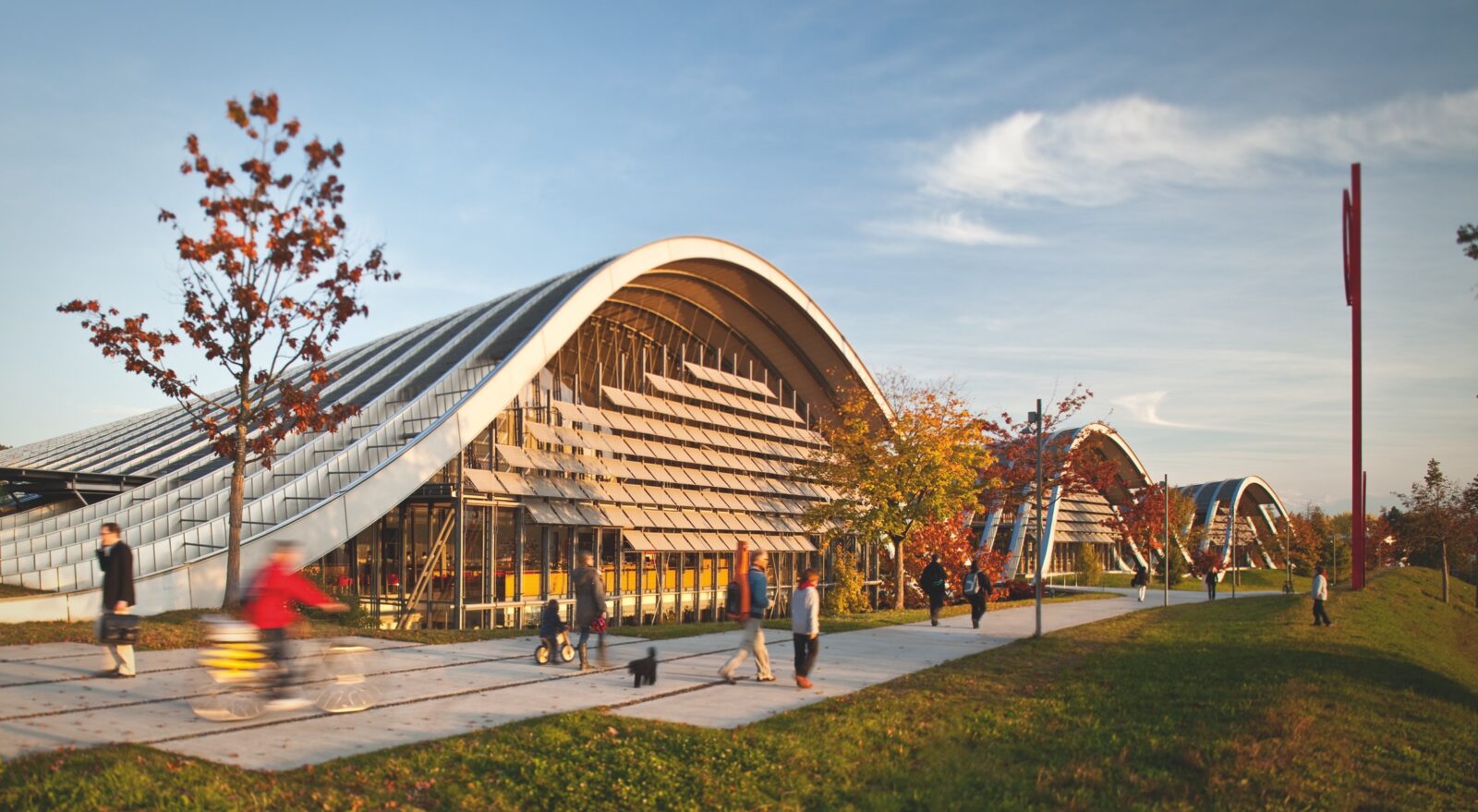In Bern, there are more than 400 companies with a combined 6,000 employees that are experts in the fields of energy and the environment, including the Swiss Federal Office of Energy and the Federal Office for the Environment (FOEN), both of whom have their headquarters here.
Centre of climate research
It’s also emerging as the centre of European climate research. Bern is home to institutions like the Oeschger Centre for Climate Change Research (OCCR) at the University of Bern, which focuses on research revolving around the climate system and its interaction with society and the economy, and the university-founded “Wyss Academy for Nature,” which is a globally-leading research and implementation centre in the field of humans and nature. “Sustainability is, on all levels, a trademark of the University of Bern. With its cutting-edge international research, the University of Bern wants to make a concrete contribution to the sustainable development of society,” said principal Christian Leumann in an interview with scientific magazine UniPress.
International energy and infrastructure company BKW, which has been working on the first decommissioning of a Swiss nuclear power plant, also has a base in Bern. Visiting associations can tap into this knowledge bank through technical visits to the company’s hydroelectric, wind and solar power plants. The energy and environmental sectors even intersect the city’s strong economic infrastructure through initiatives like the Mobiliar Lab for Natural Risks, a research project between insurance company Swiss Mobiliar and the Oeschger Centre that analyses climate risks and their effects. Institutions and initiatives like these are what have attracted events like the 700-person Open Science Meeting in 2019 and the 450-delegate Swiss Electricity Congress 2020.
Swisstainable living
Switzerland ranks first on the international Environmental Performance Index (EPI), which compares the environmental performance of countries and companies, but in Bern in particular, energy efficiency is an element built into the city’s design. Thanks to its focus on regional resources and low waste—plus a sustainable, future-forward energy policy—Bern scored the highest-ever rating for an Energy City in the country in 2019, earning 87.2 out of 100 points.
This was a long time in the making, and the proof is in the numbers: The city has lowered emissions by one tonne of CO2 to five per capita over the past eight years, and reduced heat emissions by 28% since 2008.
Convention centres are also helping drive forward progress in the overall effort toward sustainability. At Kursaal Berne, the largest convention centre in the Espace Mittelland Region, attendees can find features like food waste boxes in the catering service, a KITRO scale (which increases kitchen efficiency by identifying and weighing food thrown into the bin), homemade honey from the venue’s bees, waste heat recovery, and parking spaces with charging stations. The venue is so committed to helping reduce carbon emissions, it’s even one of the founding members of the city’s “Climate Platform.”
Contact:
meetings@bern.com / Bern.com/business
More info on Switzerland as a convention destination: myriam.winnepenninckx@switzerland.com / www.MySwitzerland.com/meetings
Other venues across Bern are moving toward greener solutions as well. Take Stadion Wankdorf, for example, which has placed solar panels on its roof and can produce enough energy per year to supply 200 households. To heat the field, the stadium has turned to a neighbouring biopharmaceutics company’s waste heat, and for food, the emphasis is on local, seasonal, and labels like Fairtrade. Hotels like Sorell, which is part of hotelleriesuisse’s “Green Living Hotels” and is ISO 14001-certified, is also working with the city of Bern through tree sponsorships and supporting the WWF for the protection of alpine biodiversity.
But the city is modernizing in more than just the greenification of its current infrastructure. On the horizon for 2025 is the Neue Festhalle, which is considered a generation project for Bern. The multifunctional event hall will sit on the current BERNEXPO site, and replace the 67-year-old structure that was originally intended to be a temporary solution.
With a capacity of 8,500 spread across spaces like eight meeting rooms, a foyer, and two halls, this contemporary new addition to the city’s landscape will allow the capital to host a wider range of events. It will also provide planners a full package for meetings, ensuring everything from accommodations to event space is forward-thinking and sustainably-driven to align with associations’ commitment toward social responsibility and climate-friendly traveling.
